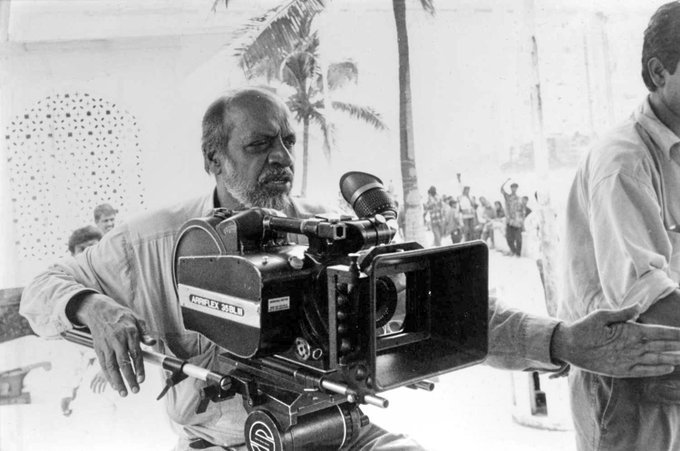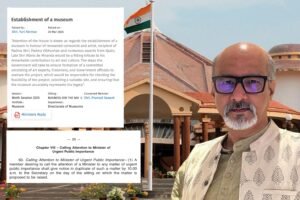Shyam Benegal: The Visionary Who Redefined Indian Cinema

Shyam Benegal, a luminary of Indian cinema, passed away on December 23, 2024, at the age of 90. His demise marks the end of an era that witnessed the rise of parallel cinema in India, a movement he pioneered with unparalleled passion and creativity.
Early Life and Beginnings
Born on December 14, 1934, in Trimulgherry, Secunderabad, British India (now part of Hyderabad, Andhra Pradesh, India), Benegal’s tryst with storytelling began early. His father, Sridhar B. Benegal, was prominent in the field of photography, which perhaps influenced young Shyam’s visual sensibilities. He pursued a Master’s degree in Economics from Osmania University, Hyderabad, where he also established the Hyderabad Film Society, laying the foundation for his cinematic journey.
Pioneering Parallel Cinema
In the 1970s and 1980s, Indian cinema underwent a transformative phase with the emergence of parallel cinema—a movement characterized by its realistic portrayal of societal issues, diverging from mainstream Bollywood’s song-and-dance routines. Shyam Benegal was at the forefront of this revolution. His debut feature film, “Ankur” (1973), was a testament to his commitment to authentic storytelling. The film delved into the feudal structures of rural India, earning critical acclaim and setting the tone for his subsequent works.

Following “Ankur,” Benegal directed a series of impactful films:
“Nishant” (1975): A gripping narrative on the abuse of power and the plight of women in a patriarchal society.
“Manthan” (1976): Funded by 500,000 farmers, this film highlighted the White Revolution in India, focusing on dairy cooperatives and rural empowerment.
“Bhumika” (1977): Explored the complexities of an actress’s life, reflecting on personal and professional struggles.
These films not only garnered national and international accolades but also sparked conversations on pressing social issues, reinforcing cinema’s role as a medium for change.
Championing Realism and Social Commentary
Benegal’s films were distinguished by their unflinching realism and profound social commentary. He possessed an innate ability to portray the intricacies of Indian society, shedding light on marginalized communities and challenging societal norms. His narratives were devoid of melodrama, focusing instead on authentic human experiences.
In “Mandi” (1983), for instance, Benegal examined the lives of sex workers, presenting their stories with empathy and depth, devoid of societal judgment. Similarly, “Kalyug” (1981) offered a contemporary retelling of the Mahabharata, set against the backdrop of industrial rivalries, showcasing his versatility in blending classical themes with modern contexts.
Mentoring Talent and Collaborative Endeavors
Beyond his directorial ventures, Benegal was instrumental in nurturing a generation of actors and technicians who would go on to become stalwarts in Indian cinema. Artists like Shabana Azmi, Naseeruddin Shah, Om Puri, and Smita Patil found a platform in his films, delivering some of their most memorable performances under his direction.
His collaborative spirit extended to his work with writers and musicians, ensuring that every aspect of his films resonated with authenticity and artistic integrity. The synergy between his direction and the contributions of his team resulted in a body of work that remains unparalleled in its impact and relevance.
Accolades and Legacy
Throughout his illustrious career, Shyam Benegal received numerous awards and honors, reflecting his immense contribution to Indian cinema. He was a recipient of the Padma Shri in 1976 and the Padma Bhushan in 1991, two of India’s highest civilian honors. In 2005, he was bestowed with the Dadasaheb Phalke Award, the highest honor in Indian cinema, acknowledging his lifetime of work and influence.
Benegal’s films continue to be studied and revered for their artistic merit and social relevance. His storytelling transcended the confines of the screen, leaving an indelible mark on the cultural and social fabric of India.
Final Curtain
Shyam Benegal’s passing is a profound loss to the world of cinema. His vision, dedication, and unwavering commitment to authentic storytelling have left an enduring legacy that will inspire filmmakers and audiences for generations to come. As we reflect on his contributions, we are reminded of the power of cinema to mirror society, challenge norms, and evoke change—a power that Benegal harnesses with unparalleled mastery.








